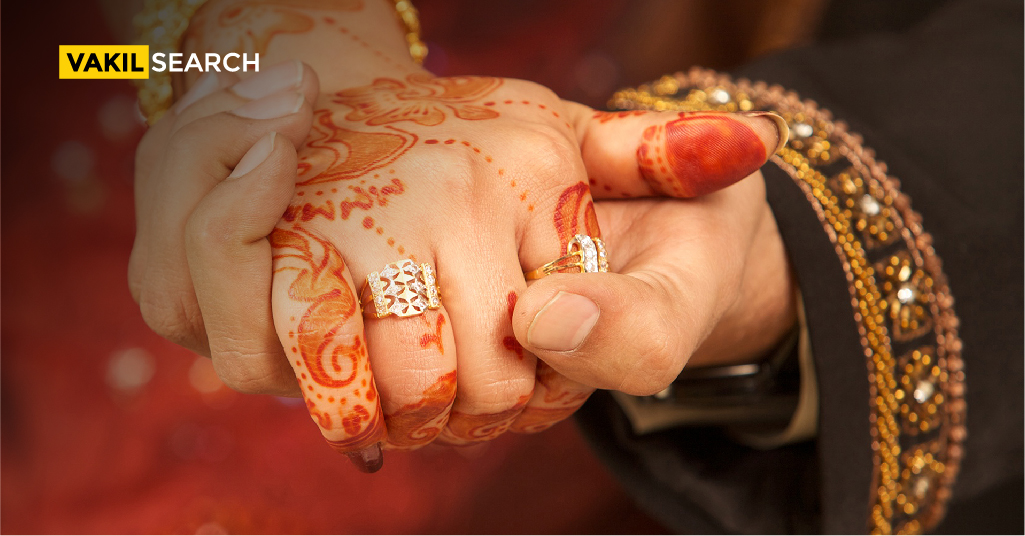Secure your future with our comprehensive guide to marriage registration and property rights. Learn how to safeguard your assets and ensure financial stability.
In India, marriage is not just a social and emotional union but also a legal one. When two individuals enter into matrimony, they not only agree to share their lives but also their assets. However, with the rising number of divorces and legal battles over property, protecting one’s assets through marriage registration and property rights has become increasingly important. This article will explore the importance of marriage registration and property rights in India and how they can safeguard your assets.
Marriage Registration in India
Marriage registration is the legal process by which a couple declares their union before a government authority. In India, the marriage registration process is governed by the Hindu Marriage Act, 1955, the Special Marriage Act, of 1954, and the Indian Christian Marriage Act, 1872. These acts provide for the registration of marriages between different religions and castes.
One of the primary reasons for marriage registration is to establish the legal validity of the marriage. With proper Marriage Registration Certificate, the government may recognise the marriage, making accessing certain rights and benefits easier. For instance, in a dispute, an unregistered marriage may not hold up in a court of law.
Another important reason for marriage certificate online registration is to establish the legal rights of the spouses. Marriage registration helps create a legal document that outlines the rights and responsibilities of each spouse towards each other. This document can help protect the interests of both parties in case of a dispute or separation.
Property Rights in Marriage
In India, the concept of property rights in marriage is governed by various laws, including the Hindu Marriage Act, 1955, the Hindu Succession Act, 1956, and the Indian Succession Act, 1925. These laws determine how property is owned, inherited, and distributed in case of a divorce or death.
Under the Hindu Marriage Act, both spouses have equal rights over the property acquired during the marriage. This includes both movable and immovable property. However, the owner retains sole ownership if the property was acquired before the marriage or through inheritance. The same rules apply to the Hindu Succession Act, which governs the distribution of property in case of death.
It is important to note that the property rights of spouses may differ depending on their religion and personal laws. For instance, under Muslim law, the husband has the right to divorce and claim the entire property acquired during the marriage.
Protecting Your Assets
Despite the legal provisions for property rights, property disputes are common in India. This is often due to the need for proper documentation and the need for clear guidelines for property division. To protect your assets, it is important to take certain steps during the marriage and property acquisition process.
- Marriage Registration: As mentioned earlier, marriage registration is essential to establish the legal validity of the marriage and protect both spouses’ rights. Registering your marriage as soon as possible is important to avoid any legal complications in the future.
- Property Documentation: Proper property ownership documentation is crucial to avoid disputes over ownership and division. This includes registration of immovable property, such as land and houses, and creating legal documents for movable property, such as jewelry and investments.
- Pre-nuptial Agreements: A pre-nuptial agreement is a legal document that outlines the rights and responsibilities of both spouses towards each other and their assets. This document can help prevent disputes over property division in case of a separation or divorce.
- Joint Ownership: Joint ownership of property is a good way to ensure equal rights and responsibilities towards the property. This can be done through joint bank accounts, investments, and property ownership.
- Will Creation: A will is a legal document that outlines how your assets will be distributed after your death. Creating a will can help prevent disputes over property division and ensure that your assets are distributed according to your wishes. It is important to update your will regularly and ensure it is properly executed to avoid legal challenges.
- Legal Consultation: Seeking legal advice from a qualified lawyer can help you understand your rights and responsibilities towards your assets. A lawyer can help you draft legal documents, such as pre-nuptial agreements and wills, and guide property division in case of a dispute.
Conclusion
Marriage registration and property rights are crucial for protecting your assets in India. Marriage registration helps establish the legal validity of the marriage and creates a legal document outlining the rights and responsibilities of both spouses. Property rights laws provide for equal ownership of property acquired during the marriage, but it is important to ensure proper documentation and legal agreements to avoid disputes.
To protect your assets, taking certain steps, including proper property ownership documentation, creating pre-nuptial agreements and wills, joint ownership, and seeking legal consultation, is important. By taking these steps, you can safeguard your assets and ensure they are distributed according to your wishes.
Vakilsearch is an online legal service provider that can help you navigate the complexities of marriage registration and property rights in India. We can assist you with the entire process for marriage registration, from obtaining the necessary documents to submitting the application and obtaining the certificate. We can also advise you on the different types of marriage registration available in India and help you choose the one that best suits your needs.

